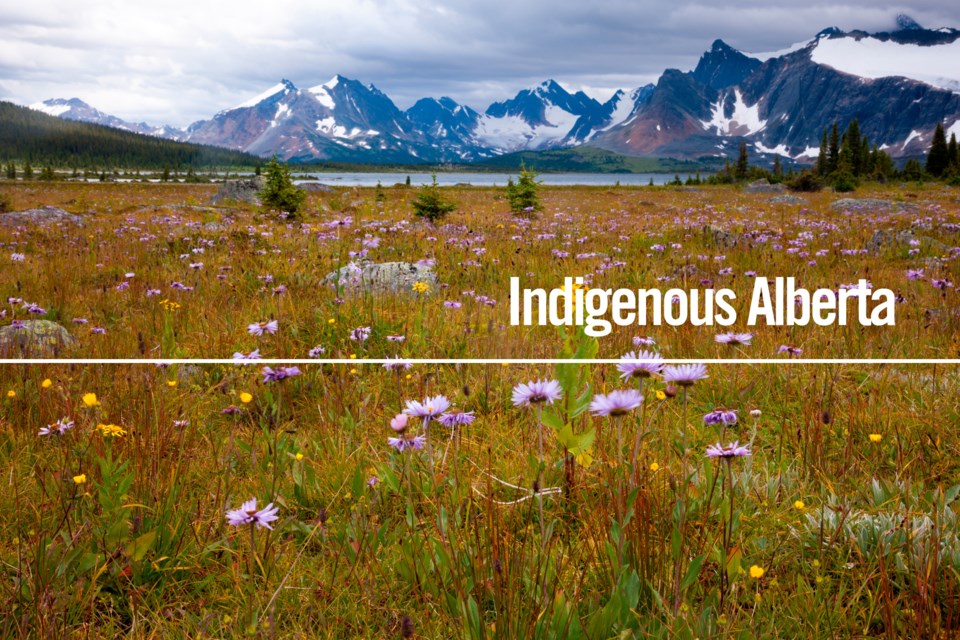The Blackfoot Confederacy kicked off the signings in September 2019, which renewed their protocol agreement with the province. The Blackfoot Confederacy chiefs to sign the agreement were Siksika (now former chief) Joe Weasel Child, Piikani Nation Chief Stan Grier and Blood Tribe Chief Roy Fox.
The second protocol agreement, which was signed in October 2020 with the Stoney Nakoda-Tsuut’ina Tribal Council, was so valued, said Indigenous Relations Minister Rick Wilson, it was “laser-etched” on to a buffalo hide by those First Nations. The hide was gifted to the Alberta government to be displayed in the legislature.
The protocol agreements are an important tool for opening doors directly between First Nations and government departments, the minister explained. They also guarantee one meeting a year with Premier Jason Kenney.
“What it’s going to do is give them access to a minister without having to go through myself (or) Indigenous Relations,” Wilson said. “Now they’ve got that direct contact and their administrative people can work with the administrative people from anything from Justice and Law (to other departments).”
Each protocol agreement is specific to the nations that sign it, allowing them to prioritize their concerns and issues and work on their own initiatives.
Some areas that are included in the agreements are economic development, health, education, language, legal issues, infrastructure, and environment.
While the agreements set up opportunities for the protocol signatories to meet together with various government departments, the agreements do not preclude the nations from meeting separately with government departments, too.
The protocol agreements are not legally binding and do not create any legal rights or responsibilities. Wilson doesn’t see that as a concern.
“It’s tables that set out how we’re going to move forward,” he said.
The protocol agreements also state that they are “guided by the principles” set out in the United Nations Declaration on the Rights of Indigenous Peoples and the Calls to Action by the Truth and Reconciliation Commission (TRC) on Indian residential schools.
Recently, the United Conservative Party government came under fire from TRC Commissioner Chief Wilton Littlechild, a former grand chief of Treaty 6, who was speaking at the five-year anniversary of the TRC’s final report which outlined 94 Calls to Action.
Littlechild said Alberta was among six provinces calling for the federal government to delay UNDRIP implementation legislation. TRC action number 43 calls upon federal, provincial, territorial, and municipal governments to fully adopt and implement the United Nations Declaration on the Rights of Indigenous Peoples as the framework for reconciliation.
“I am most disheartened that Alberta, the province that had the highest number of residential schools in Canada, is leading these attempts at delays. In fact, the previous Alberta government had adopted and implemented the UN declaration extensively and these efforts of reconciliation are now under attack,” said Littlechild.
Wilson says the UCP supports UNDRIP “in principle.”
“There are some articles in which we have some issues and we need to have some discussion around, just to get clarification as to what the real meaning of it is. It's really around the FPIC, the free, prior and informed consent. What does that mean and what are the implications for that? So what we would like for the federal government to do is to provide clarification around that,” said Wilson.
Free, prior and informed consent in UNDRIP requires consultation with Indigenous peoples prior to any action being undertaken that will affect Indigenous peoples’ rights, including to land, territory and resources, and that informed consent must be given, or not given, freely.
Wilson noted that Alberta’s concerns were shared by other provinces, as well as other Indigenous groups.
“Several Indigenous groups … (are) concerned that this might impede them from moving forward on a project unless they have the consent of all the First Nations when they're trying to do a project,” he said.
Wilson said the province is committed to working with the federal government to get those clarifications.
Shari Narine, Local Journalism Initiative Reporter
Read more from WindSpeaker.com



